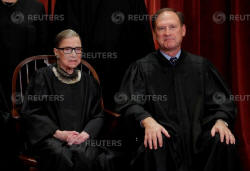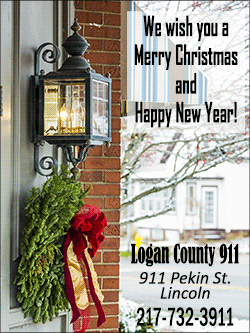U.S. top court signals it will buttress anti-fraud
securities laws
 Send a link to a friend
Send a link to a friend
 [December 04, 2018]
By Andrew Chung [December 04, 2018]
By Andrew Chung
WASHINGTON (Reuters) - U.S. Supreme Court
justices on Monday appeared reluctant to further limit the scope of who
can be held liable for violating laws that protect investors from
securities fraud as they weighed an appeal by a New York investment
banker who had been banned from the industry.
Only eight of the nine justices were present to hear arguments over a
ruling by a Washington-based federal appeals court that found Francis
Lorenzo liable for participating in a scheme to defraud investors when
he sent misleading emails about a financially-troubled clean energy
company.
Most of the justices seemed to agree with the Securities and Exchange
Commission (SEC), which had enforced the securities laws against
Lorenzo, while Chief Justice John Roberts and fellow conservative
Justice Neil Gorsuch, seemed sympathetic to him.

The court has a 5-4 conservative majority. Justice Brett Kavanaugh, a
conservative appointee of Republican President Donald Trump, did not
participate in the case because he was part of the three-judge appeals
court panel that previously reviewed the dispute. Kavanaugh joined the
high court in October.
Kavanaugh dissented in the appeals court ruling that upheld most of the
SEC's liability findings against Lorenzo, and would have sided with the
banker.
The high court must rule in the case by the end of June.
The dispute centers on whether a person who did not personally make
fraudulent statements but merely passed them along can be found liable
for engaging in a fraudulent scheme. Anti-fraud provisions of U.S.
securities laws prohibit false statements and other conduct categorized
as acts, devices, practices or schemes.
On Monday, all four liberal justices and conservative Justice Samuel
Alito appeared to approve of Lorenzo's liability in the deceptive
scheme.
Lorenzo's attorney Robert Heim said that sending emails was not
inherently deceptive, but liberal Justice Ruth Bader Ginsburg noted that
the emails contained a "succession of untruths." Justice Stephen Breyer
said, "Maybe he didn't make the statement, but he was sure a big deal
participant."
Alito wondered why Lorenzo's actions would not "fall squarely" within
the language of the SEC's rules.
[to top of second column] |

U.S. Supreme Court Associate Justices Ruth Bader Ginsburg and Samuel
Alito, Jr. sit next to each other as all of the justices on the
court pose for their group portrait together at the Supreme Court in
Washington, U.S., November 30, 2018. REUTERS/Jim Young/File Photo

In 2011 the Supreme Court narrowed the scope of who can be liable for false
statements to those with ultimate authority over the statements.
Lorenzo, who served as the investment banking director at a broker-dealer called
Charles Vista, sent the emails in 2009 seeking investors for a startup company's
debt offering even though its energy-from-waste technology did not work.
The SEC in 2015 found that he made false statements and participated in a
deceptive scheme by sending the emails. The commission fined him $15,000 and
barred him from working in the industry for life.
Citing the 2011 Supreme Court precedent, the District of Columbia U.S. Circuit
Court of Appeals last year threw out Lorenzo's liability over the false
statements, saying they were made by his boss, but agreed with the fraudulent
scheme charges because he knowingly produced and sent the false statements in
the emails. It ordered the SEC to reconsider the penalties against Lorenzo.
Lorenzo said the SEC is trying to paint people who might be liable at most for
aiding and abetting fraudulent schemes as the primary violators of securities
laws.
On Monday, Gorsuch seemed to agree, noting that Lorenzo did not make the false
statements in the emails he sent.
Lorenzo, who had the support of the powerful U.S. Chamber of Commerce business
group, said that if the appeals court is not overturned it will lead to a swarm
of abusive lawsuits, harming financial markets and the economy.
(Reporting by Andrew Chung; editing by Grant McCool)
[© 2018 Thomson Reuters. All rights
reserved.] Copyright 2018 Reuters. All rights reserved. This material may not be published,
broadcast, rewritten or redistributed.
Thompson Reuters is solely responsible for this content.
 |